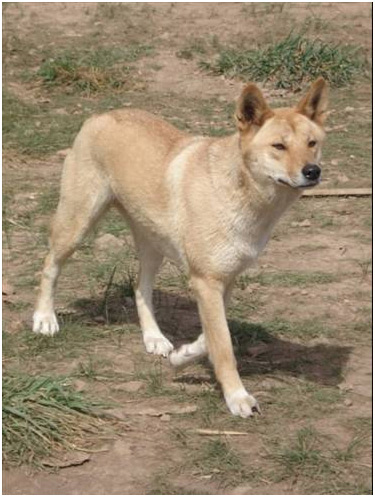Wild dog disease to blame for cattle miscarry?
Global Biosecurity Media Relese: February 2010

New research linking wild dogs to miscarriage in cattle threatens to widen the impact the pests have on Australian livestock producers.
Known for their attacks on sheep, wild dogs are now under suspicion of transferring reproductive disease, neosporosis, to cattle.
Caused by the microscopic parasite Neospora caninum (N. caninum), neosporosis is estimated to cost the Australian dairy and beef industries, an average of $30 million a year in aborted pregnancies.
“Research has shown that vertical transmission alone, in which the cow transfers the parasite to its foetus, is insufficient to sustain infection in a herd,” University of Sydney PhD candidate Jessica King said.
Overseas research identified domestic dogs as a source of N. caninum infection to cattle during 1998. Dogs are capable of shedding N. caninum oocysts in their faeces following consumption of infected tissue or afterbirth from cattle. These oocysts become infective in the environment and can contaminate feed and water of livestock.
Ms King is working with the Invasive Animals CRC to research whether Australian wild canids (dingoes, dingo/domestic dog hybrids and foxes) are the missing link in the transmission of this disease to cattle. She explains what farmers can do to minimise the spread of neosporosis when she presents her findings at the Global Biosecurity Conference in Brisbane from February 28 to March 3.
Ms King said the symptoms of neosporosis in herds were sporadic.
“Cows or heifers may abort occasionally and in low numbers throughout the herd, or it may occur as an ‘abortion storm’, where up to 33 per cent of the breeding herd may abort within a few months.”
“Adult cows show no clinical signs of illness following infection.”
Recent surveys of N. caninum in cattle revealed that a large proportion of herds with the disease were located close to bushland where wild dogs and foxes are common.
“Our experimental trials identified that Australian dingoes are a definitive host of N. caninum and therefore a risk factor for neosporosis in cattle.”
“However we should not use data to condemn wild dogs, because farm dogs are likely to be as much to blame for the transmission of the disease to cattle.”
 “Farm and other domestic dogs have ready access to potentially infectious material when fed offal and through scavenging on dead cattle and afterbirth.”
“Farm and other domestic dogs have ready access to potentially infectious material when fed offal and through scavenging on dead cattle and afterbirth.”
Ms King collaborates with scientists at the University of Technology Sydney, Charles Sturt University and Industry & Investment NSW. She is supported through a stipend from the Invasive Animals CRC who are joining forces with the Australian Biosecurity CRC for Emerging Infectious Disease and CRC for National Plant Biosecurity to host the world’s first international conference focusing on agricultural and environmental biosecurity.
Global Biosecurity 2010 is sponsored by: Horticulture Australia Limited, the Grains Research and Development Corporation and the Australian Centre of Excellence for Risk Analysis.
Photo caption: New research linking wild dogs to miscarriage in cattle threatens to widen the impact the pests have on Australian livestock producers.
Photo courtesy of Jessica King, University of Sydney
Registrations for the conference are now open. Visit www.globalbiosecurity2010.com
Media contact l Laureta Wallace
P (08) 6250 4561
M 0457 589 703
| Attachment | Size |
|---|---|
| 170210 GB2010 Media Release.pdf | 46.05 KB |

